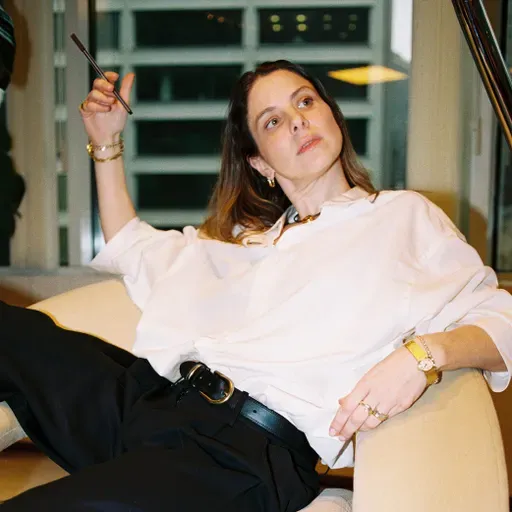
What does it take to translate timeless brands into the digital age—and what happens when you refuse to play by algorithmic rules? This week on The Materialist, I sit down with Ruthie Friedlander, a digital pioneer who has shaped how we see luxury fashion and jewelry online.
Ruthie’s story defies linear career paths. She started as Dan Abrams’ assistant in the early days of Mediaite, carved out one of Chanel’s first digital roles, joined the Olsen twins at The Row when the company was barely 25 people, and later helped lead digital strategy at ELLE and InStyle. Today she runs At Large, the creative agency she “accidentally” founded after burning out on editorial quotas that demanded 80 stories a day. Along the way, she has become a leading voice on what it means to build brands that endure.
Highlights from our conversation:
* On brand integrity: “It’s either right or it’s wrong.” Ruthie draws a through-line from Chanel to The Row to At Large: the best brands refuse compromise.
* On digital shortcuts: chasing algorithms creates short-term growth but erodes identity. She explains why so many millennial “playbook brands” fizzled out.
* On jewelry’s unique challenge: unlike sweaters, fine jewelry brands must finance inventory, consign pieces, and absorb the risk—making scale almost impossible without deep pockets.
* On lab vs. natural diamonds: chemically identical, yes—but “I will always look at natural diamonds and lab diamonds differently from a spiritual perspective.”
* On building healthier workplaces: having recovered from an eating disorder exacerbated by fashion’s culture and starting The Chain, a nonprofit dedicated to eating disorder advocacy in fashion and entertainment, Ruthie is committed to running a company where therapy, boundaries, and health are non-negotiable.
Why it matters for The Materialist community
Jewelry and design aren’t just about objects; they’re about the stories and structures behind them. Ruthie helps us see how storytelling sells, why clarity outlasts trends, and how the jewelry industry mirrors broader questions of value, scarcity, and meaning.
This is a public episode. If you would like to discuss this with other subscribers or get access to bonus episodes, visit atpresent.substack.com